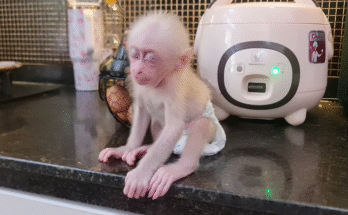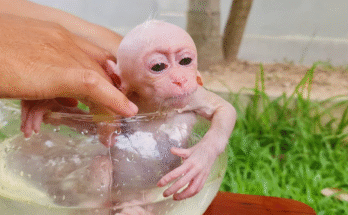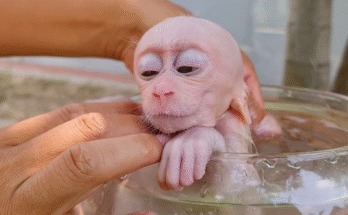Caring for a Premature Kitten: Ensuring Survival and Health
Caring for a premature kitten requires meticulous attention and a nurturing environment. Begin by keeping the kitten warm, as they cannot regulate their body temperature. Use a heating pad set to low, covered with a soft towel, and ensure the kitten’s area is draft-free. Feed them with kitten milk replacer every two to three hours using a syringe or bottle, as regular milk can harm them. Gently stimulate urination and defecation after each feeding. Monitor for signs of illness, like lethargy or poor appetite, and seek veterinary care promptly. With dedication and love, a premature kitten can grow into a healthy and vibrant cat.
How to Care for Premature Kittens: A Comprehensive Guide
Premature kittens, born before full-term development, require intensive care to survive and thrive. Their fragility demands attention to every detail of their environment, nutrition, and health. Here is a detailed guide to ensure their survival and promote good health.
1. Create a Warm and Safe Environment
Premature kittens cannot regulate their body temperature. Keeping them warm is vital:
- Temperature Control: Use a heating pad set to low or a heat lamp. Ensure the temperature is between 85-90°F (29-32°C) for the first week.
- Safe Placement: Place the heat source under one side of the nesting box, leaving the other side cooler so the kittens can move away if they feel too warm.
- Bedding: Use soft, clean towels or blankets to provide comfort and avoid drafts.
2. Proper Nutrition and Feeding Schedule
Premature kittens need specialized nutrition since they cannot nurse effectively:
- Kitten Milk Replacer (KMR): Use a high-quality commercial KMR. Avoid cow’s milk, as it can cause digestive issues.
- Feeding Tools: Use a syringe or a small nursing bottle designed for kittens. Warm the milk replacer to approximately 100°F (37.8°C) before feeding.
- Feeding Schedule: Feed every two to three hours, even overnight, for the first two weeks. Adjust the frequency as they grow.
- Feeding Technique: Hold the kitten upright or on their stomach. Never feed a kitten on its back, as it may aspirate the milk.
3. Assist with Elimination
Premature kittens cannot urinate or defecate on their own:
- Stimulation: After each feeding, gently rub the kitten’s genital area with a warm, damp cotton ball or soft cloth to stimulate urination and defecation.
- Observe Output: Check for consistency and color of stool. Abnormalities may indicate health issues requiring veterinary attention.
4. Monitor Health Closely
Premature kittens are highly vulnerable to illness:
- Weight Monitoring: Weigh them daily using a digital scale. Healthy weight gain is a positive sign.
- Behavioral Signs: Be alert for lethargy, refusal to eat, or excessive crying, which may indicate health problems.
- Infection Prevention: Wash your hands before handling, and keep their environment clean.
- Vaccinations and Deworming: Consult a veterinarian to begin vaccinations and deworming at the appropriate time.
5. Provide Emotional Support
Premature kittens benefit from gentle handling and care:
- Bonding: Speak softly and handle them gently to reduce stress.
- Socialization: Once stable, introduce them gradually to human interaction and other kittens to encourage healthy social development.
6. Veterinary Support
Regular veterinary care is essential:
- Check-ups: Schedule frequent check-ups to monitor development.
- Emergency Care: Seek immediate veterinary attention if the kitten shows signs of illness, such as vomiting, diarrhea, or difficulty breathing.
Conclusion
Caring for premature kittens requires patience, dedication, and attention to detail. By providing a warm environment, proper nutrition, and vigilant health monitoring, you can help these vulnerable kittens grow into healthy, thriving cats. Always consult a veterinarian for guidance and support, as professional care is crucial for their survival.
With love and commitment, even the smallest and most fragile kittens can have a bright and healthy future.
Don’t Throw the Baby Out with the Bathwater: A Monkey’s Bathing Secret
How to Bathe a Newborn Monkey Without Tears
Bathing a newborn monkey can be challenging, especially when they cry intensely. To ensure a smooth and tear-free experience, start by creating a calm environment. Use warm water at a comfortable temperature, as monkeys are sensitive to cold. Gently hold the baby monkey, ensuring they feel secure and supported. Use a soft cloth to clean their delicate skin without harsh scrubbing. Keep the session short to avoid overstimulation. Singing or speaking softly can help soothe them. After the bath, wrap them in a warm towel and provide gentle cuddles. With these methods, bathtime becomes a relaxing bonding experience.
How to Bathe a Newborn Monkey Without Tears
Bathing a newborn monkey can be a delicate task, as these tiny creatures are highly sensitive and prone to stress. A calm, comfortable bath routine is essential for their well-being and to foster trust between you and the baby monkey. In this detailed guide, we will cover every step to ensure a smooth, tear-free bathing experience for your newborn monkey.
1. Prepare the Environment
Creating the right environment is the first step in making bath time stress-free:
- Quiet Space: Choose a quiet room away from loud noises or distractions.
- Temperature Control: Ensure the room is warm, ideally between 75-85°F (24-29°C), to prevent the monkey from feeling cold.
- Warm Water: Use lukewarm water, between 100-105°F (37-40°C), tested with a thermometer or your wrist to ensure comfort.
2. Gather the Necessary Supplies
Having everything ready before starting ensures a smooth process:
- A small basin or sink lined with a non-slip mat.
- Mild, monkey-safe shampoo or soap.
- A soft washcloth or sponge.
- Towels, preferably soft and absorbent.
- A clean, dry blanket for after the bath.
3. Handle the Baby Monkey Gently
Newborn monkeys are fragile and need to feel secure:
- Hold Them Comfortably: Use one hand to support their back and neck, ensuring they feel safe.
- Speak Softly: Calmly talk or hum to them, as your voice can be soothing.
- Keep Eye Contact: This builds trust and reassures the monkey.
4. Step-by-Step Bathing Process
Follow these steps to bathe your newborn monkey effectively:
A. Wetting the Monkey
- Gradually pour warm water over their body using a small cup. Avoid splashing water on their face to prevent distress.
B. Cleaning
- Use a soft cloth or your hand to gently lather the shampoo or soap on their skin. Focus on areas that tend to accumulate dirt, such as underarms, neck folds, and behind the ears.
- Be extra careful with their face. Use a damp cloth to wipe it gently without getting water or soap in their eyes.
C. Rinsing
- Pour warm water over the monkey’s body to remove soap thoroughly. Residual soap can irritate their sensitive skin.
D. Drying
- Immediately wrap the monkey in a soft towel to keep them warm. Gently pat their skin dry, avoiding any rubbing motion.
5. Post-Bath Care
- Comfort Them: After drying, cuddle the monkey in a warm blanket. This helps them feel safe and secure.
- Check Their Skin: Look for any signs of irritation or dryness and apply a veterinarian-approved moisturizer if needed.
- Reward with Love: Offer gentle strokes or a favorite treat to associate bathtime with positive feelings.
6. Tips for a Tear-Free Experience
- Short Sessions: Keep baths under 10 minutes to avoid overstimulation.
- Consistency: Establish a regular bath routine so the monkey becomes accustomed to the process.
- Use Soothing Techniques: Soft humming or playing calm music can create a relaxing atmosphere.
7. Common Mistakes to Avoid
- Using Cold Water: Always ensure the water is warm but not hot.
- Over-Bathing: Bathing too frequently can dry out the monkey’s skin. Once or twice a week is sufficient.
- Rushing: Take your time to handle the monkey gently and patiently.
8. When to Seek Professional Help
If your newborn monkey exhibits signs of extreme distress, skin issues, or unusual behavior after bathing, consult a veterinarian or a primate care expert immediately.
Conclusion
Bathing a newborn monkey without tears is all about preparation, patience, and gentleness. By creating a safe and comforting environment, using appropriate supplies, and following the steps outlined above, you can turn bath time into a bonding experience rather than a stressful ordeal. Remember, the key is to make the monkey feel loved and secure, ensuring their physical and emotional well-being.
Falling Down, but Not Out: Baby Resilient Spirit
Caring for a newborn monkey requires patience, knowledge, and dedication. Start by providing a warm, safe environment that mimics the comfort of their natural habitat. Feed them an appropriate diet, such as specially formulated milk or a veterinarian-recommended substitute, every 2–3 hours. Hygiene is essential—clean feeding bottles thoroughly and maintain a sanitary space. Gentle handling helps them feel secure and loved. Regular checkups with a vet are crucial for monitoring their health. Bonding through physical closeness promotes trust and emotional well-being. Proper care not only ensures their survival but also builds a strong, lasting relationship.
Essential Points to Understand About Caring for a Newborn Monkey
Caring for a newborn monkey is a delicate task that requires attention to detail, patience, and a deep understanding of their unique needs. These primates share many similarities with humans, but their care is specific to their species. Here are the key points you need to know to ensure the well-being of a newborn monkey:
1. Creating a Safe and Comfortable Environment
A newborn monkey requires a warm, secure space that mimics the natural conditions they would experience with their mother. Use soft blankets or towels to create a cozy nest, ensuring it is free from hazards like sharp objects or loose threads. Maintain a temperature between 85–90°F (29–32°C) to keep them comfortable, especially in the first few weeks.
2. Proper Nutrition
Feeding a newborn monkey requires careful attention. Consult a veterinarian to identify the best milk formula for their specific species, as cow’s milk is often unsuitable and can cause digestive issues. Feedings should occur every 2–3 hours, using sterilized bottles to prevent infections. Gradually introduce small amounts of mashed fruits or baby food as they grow, ensuring their diet meets their developmental needs.
3. Maintaining Hygiene
Cleanliness is critical for newborn monkeys, as they are highly susceptible to infections. Wash your hands before handling them and sterilize feeding equipment after each use. Clean their living area regularly and dispose of waste promptly to avoid attracting pests.
4. Health Monitoring
Newborn monkeys are vulnerable to various health issues. Regular veterinary checkups are essential to monitor their growth and address potential problems early. Watch for signs of illness, such as lethargy, lack of appetite, or abnormal stools, and seek immediate medical attention if these occur.
5. Emotional Bonding and Socialization
Newborn monkeys thrive on physical and emotional connection. Mimic the nurturing care of a mother by holding them close, stroking their fur, and speaking in soothing tones. This builds trust and emotional security. As they grow, gradually introduce them to other monkeys or companions to encourage healthy social behaviors.
6. Establishing a Routine
Monkeys, like humans, benefit from consistent routines. Set regular times for feeding, cleaning, and play to help them feel secure and reduce stress. A predictable schedule promotes better overall health and behavior.
7. Understanding Legal and Ethical Responsibilities
Caring for a newborn monkey comes with legal and ethical obligations. Ensure that you are complying with local regulations regarding primate ownership. Always prioritize the monkey’s welfare and consider their long-term needs, as they require years of commitment and care.
8. Enrichment and Mental Stimulation
Monkeys are intelligent and curious animals. Provide toys, climbing structures, and interactive activities to stimulate their minds and prevent boredom. Simple items like ropes, mirrors, and puzzle feeders can keep them engaged and promote natural behaviors.
9. Preparing for Growth and Development
Newborn monkeys grow quickly, and their needs change over time. Stay informed about their developmental milestones and adjust their diet, environment, and enrichment accordingly. Consulting with primate experts or joining forums can provide valuable guidance.
10. Building a Support Network
Caring for a newborn monkey can be challenging, especially for first-time caregivers. Connect with other primate owners, rescue organizations, or veterinarians experienced with monkeys to share advice and support. Online communities can be an invaluable resource for troubleshooting issues and gaining insights.



